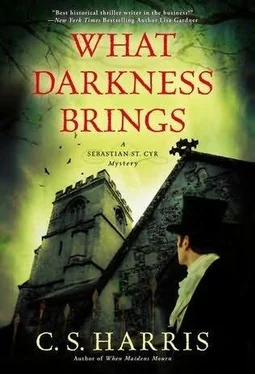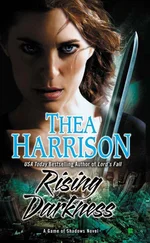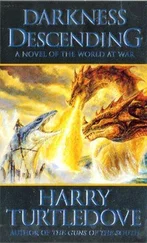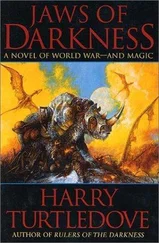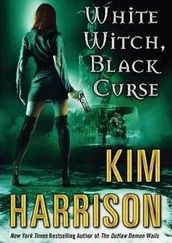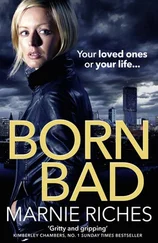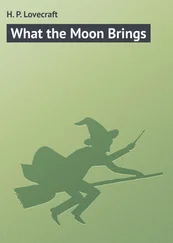C. Harris - What Darkness Brings
Здесь есть возможность читать онлайн «C. Harris - What Darkness Brings» весь текст электронной книги совершенно бесплатно (целиком полную версию без сокращений). В некоторых случаях можно слушать аудио, скачать через торрент в формате fb2 и присутствует краткое содержание. Жанр: Исторический детектив, на английском языке. Описание произведения, (предисловие) а так же отзывы посетителей доступны на портале библиотеки ЛибКат.
- Название:What Darkness Brings
- Автор:
- Жанр:
- Год:неизвестен
- ISBN:нет данных
- Рейтинг книги:3 / 5. Голосов: 1
-
Избранное:Добавить в избранное
- Отзывы:
-
Ваша оценка:
- 60
- 1
- 2
- 3
- 4
- 5
What Darkness Brings: краткое содержание, описание и аннотация
Предлагаем к чтению аннотацию, описание, краткое содержание или предисловие (зависит от того, что написал сам автор книги «What Darkness Brings»). Если вы не нашли необходимую информацию о книге — напишите в комментариях, мы постараемся отыскать её.
What Darkness Brings — читать онлайн бесплатно полную книгу (весь текст) целиком
Ниже представлен текст книги, разбитый по страницам. Система сохранения места последней прочитанной страницы, позволяет с удобством читать онлайн бесплатно книгу «What Darkness Brings», без необходимости каждый раз заново искать на чём Вы остановились. Поставьте закладку, и сможете в любой момент перейти на страницу, на которой закончили чтение.
Интервал:
Закладка:
Louisa Hope’s voice floated across to them. “Blair?”
Beresford gave a quick, flustered bow. “Excuse me. Please. ”
Sebastian let him go.
He stood and watched the young man lope back down the street, dodging two turbaned matrons making their slow, ponderous way arm in arm up the flagway, and nearly colliding with a liveried footman burdened with a pile of packages. He was aware of the column of soldiers drawing abreast of him, side drum tapping, boots tramping out their familiar cadence. They looked to be new recruits, probably on their way to the port, where a ship would carry them away to as-yet-unfought battles in distant lands.
He turned to watch them, his gaze studying the rows of freshly scrubbed faces. Most appeared pathetically eager and excited; a few were anxious. But one or two bore the distant, focused stare of a man who has seen his own death and yet marches inexorably toward it.
Chapter 30
In Sebastian’s experience, men like Blair Beresford rarely committed murder. There was something sad and gentle-almost fragile-about the young man that argued against the kind of passion and violence that murder usually entailed. But he’d learned long ago that most people, however calm and tender, however controlled and even-tempered, were capable of murder if pushed hard enough or put in the wrong situation.
He couldn’t see Beresford killing Eisler over a debt of five hundred pounds, although he had only Beresford’s word for it that the debt actually was five hundred pounds and not ten times that. Would Beresford kill for five thousand pounds? Ten thousand?
Sebastian still didn’t think so. But if Eisler had goaded or taunted the young man? If he had threatened to expose Beresford’s debt and the way in which he was repaying? Was Blair Beresford capable of killing a nasty, evil old man while in the grip of a rage born of fear and shame?
Sebastian couldn’t be certain, but he thought it possible.
Turning toward his own curricle, Sebastian found himself wondering once again why Samuel Perlman had given him Blair Beresford’s name. And it occurred to him now that the object of Perlman’s animosity might not be Beresford himself so much as Thomas Hope. If whoever killed Daniel Eisler also stole the valuable blue diamond Eisler was handling, then as Eisler’s heir, Perlman would be responsible for compensating the diamond’s owner for its loss-assuming, of course, that the owner could prove Eisler had had the gem in his possession.
Sebastian suspected a man as astute as Hope would have kept detailed records of any such transaction.
But if the blue diamond was indeed the motive for Eisler’s murder, that would require the killer to have known that the old man had the gem in his possession. So how many people would have been privy to that information? Francillon, obviously, and Hope-if the diamond was truly his. Samuel Perlman? Perhaps. Blair Beresford? Possibly. Matt Tyson? Again, possibly, if Beresford knew.
Only, how had Jacques Collot come to hear of it? And who else might have known?
Sebastian started to head back toward Brook Street. Then he changed his mind and turned his horses toward the Strand and the discreet establishment of the lapidary John Francillon.
The shutters were already up on the windows of Francillon’s small shop on the Strand when Sebastian pushed open the door, the jingle of the brass bell filling the air.
Francillon was behind the counter, his back turned, his head bent as he slid a tray into a tall wooden cabinet. “Sorry, we’re closed,” he said without even bothering to look up. “You can come back in the morning, if you like. We open at ten.”
Sebastian said, “I have a few more questions I need to ask you.”
Francillon spun around, the shop’s single oil lamp throwing his lithe shadow across the counter and up over the rows of paintings and specimens on the far wall. “But I have already told you everything!”
“This isn’t about Eisler’s diamond, exactly.” Sebastian placed his forearms on the polished countertop and leaned into them. “I want you to tell me about the theft of the French Crown Jewels.”
Francillon turned to carefully close the cabinet door behind him. “What makes you think I know more than what I have already told you?”
“Because jewels are your business, and this was probably the greatest jewel theft in history. Because your people came from France, so I would imagine you’ve watched the events unfolding there very carefully. And because I don’t think you’re the kind of man who’s comfortable with the idea of letting someone who’s innocent hang for a murder he didn’t commit.”
Francillon smoothed his hands over his hair, as if to reassure himself of its neatness, although there was not a strand out of place. Then he came to rest one hip on a high stool, his laced fingers resting against his thigh, his gaze far, far away. “Very well. Let me see. . You know that the revolutionary government confiscated the Crown Jewels from Louis XVI after he attempted to flee the country with his family in the summer of 1791?”
“Yes.”
“To give you an idea of the amount of treasure involved, an inventory was made at the time. It ran to something like fifty pages.”
“That much?”
Francillon nodded. “The Bourbons had what was probably the largest collection of jewels in Europe. All together, they were valued at more than twenty-four million livres; the French Blue alone was estimated to be worth three million livres.”
“So what did the revolutionary government do with them?”
“The Crown Jewels were declared the property of the people and placed under guard in the Hotel du Garde-Meuble on the Place Louis XV-what later became the Place de la Revolution.” He paused, a spasm crossing his face. The Place de la Revolution had become famous as the site of the guillotine.
“Go on,” said Sebastian.
“The jewels were then put on display. The thinking was that since they belonged to the people, the people ought to be allowed to see them. So every Monday, the hotel was opened to the public. The jewels remained on display for over a year, until August of 1792, when a decision was made to close the exhibit due to the growing instability in Paris.”
“But they were still kept in the Garde-Meuble?”
“Oh, yes. In locked cabinets in a chamber located just above the ground-floor entrance. The chief conservator responsible for the treasures complained constantly that he needed more guards, but. .” Francillon shrugged. “It was September of 1792; the entire nation was falling apart.”
“So at the time of the theft,” said Sebastian, “the exhibition was closed?”
“It was. But before the visits were suspended, a man named Paul Miette had gone to the Garde-Meuble every Monday for weeks, studying the habits of the guards, the various approaches to the treasure room. There is some evidence he also managed to acquire inside information about the habits of the guards, but that was never proven.”
“So what happened?”
Francillon pulled at his earlobe. “On the night of 11 September, Miette and some half a dozen of his cohorts simply propped a ladder against the wall at the front of the building, cut a hole in an upstairs window, and climbed inside. There was so much to steal that they couldn’t carry it all away with them. But when they realized the theft had not been noticed, they came back two nights later, and again two nights after that. By their fourth visit, they’d become so bold that they turned the theft into a drunken revelry, complete with whores, food, and wine. Everything from jeweled swords to statues to bells was simply tossed out the windows to friends waiting in the street below.”
Читать дальшеИнтервал:
Закладка:
Похожие книги на «What Darkness Brings»
Представляем Вашему вниманию похожие книги на «What Darkness Brings» списком для выбора. Мы отобрали схожую по названию и смыслу литературу в надежде предоставить читателям больше вариантов отыскать новые, интересные, ещё непрочитанные произведения.
Обсуждение, отзывы о книге «What Darkness Brings» и просто собственные мнения читателей. Оставьте ваши комментарии, напишите, что Вы думаете о произведении, его смысле или главных героях. Укажите что конкретно понравилось, а что нет, и почему Вы так считаете.
